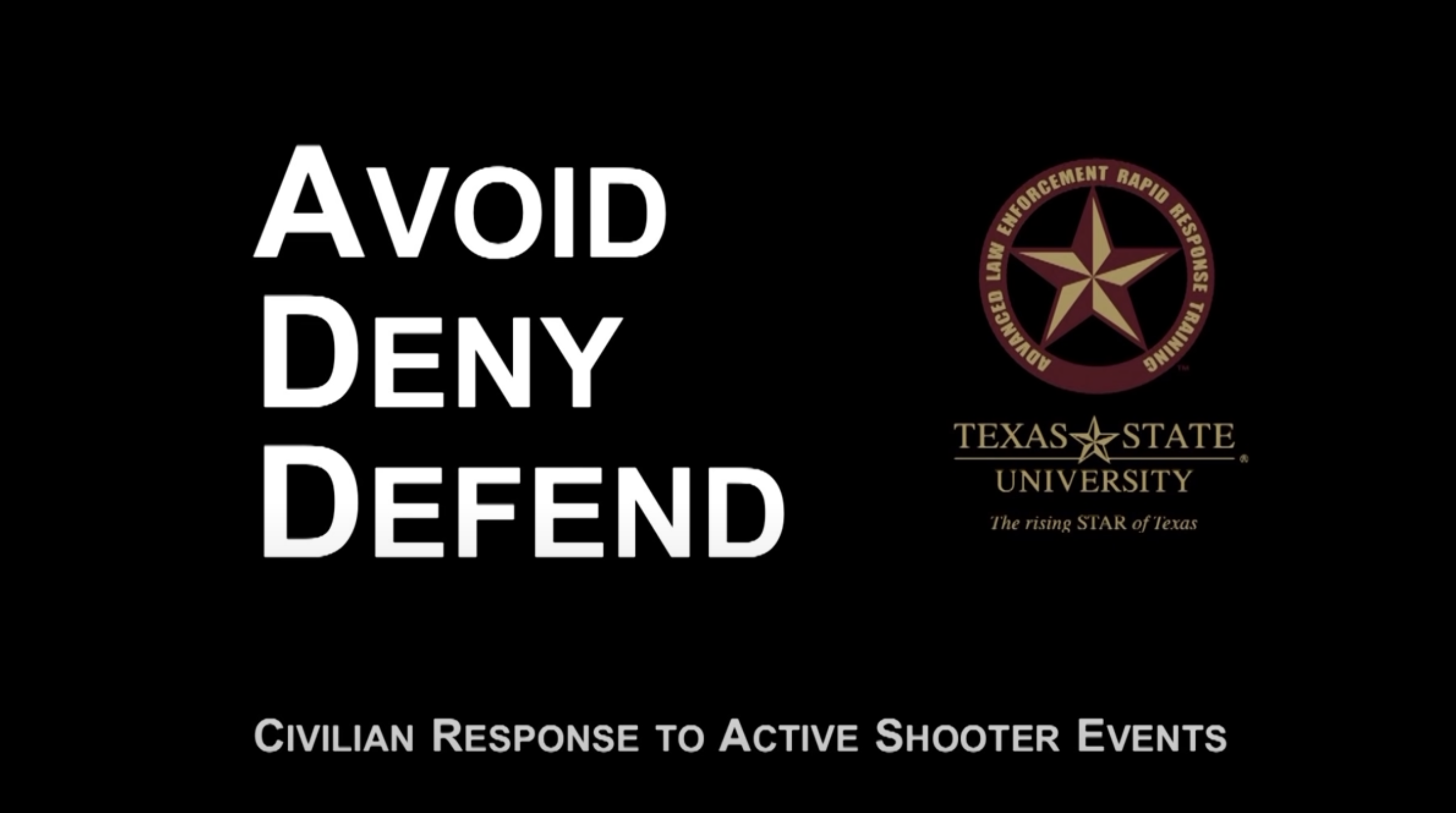
Safety Policies & Procedures
At our College, safety is not just a priority but a collective commitment. Get to know more about our safety policies and procedures, designed to foster an environment where everyone can grow, learn, and thrive without compromise.
Committed to Your Safety
RAVE Emergency Alert
We enroll all students in the RAVE program using their WCJC email address at no additional expense. Please log in to the RAVE Mobility Site to confirm your contact information and choose your notification preferences.
- Students: Your username is your WCJC student email prefix (everything before the @student.wcjc.edu), and your password is your student email password.
- Employees: Login with your WCJC username just as when logging into your campus computer or through Outlook Web Access (everything before the @wcjc.edu) and network password (omit the wcjc\ before the username).
RAVE Tips
- More information is better; if there are problems with congested phone networks, for instance, having text messaging addresses, emails, etc., may help us reach you sooner.
- It’s okay to enter an off-campus phone number if you wish for your family to be advised of any urgent on-campus situation.
- Due to the instant nature of the service, all devices will be contacted simultaneously, including your cell phone, email, SMS, home phone, etc.
- Please provide phone numbers and/or text addresses that reach you directly, not general lines like dorm pay phones, general office lines, etc.
Safety Tips
Escort Services are available to our faculty, staff, students, and visitors. Contact the Wharton Campus at 979-532-6523 or the Richmond Campus at 281-239-1501 to request an escort.
- When working late, make sure doors are closed and locked.
- Tell a friend or colleague where you are.
- Be aware of your surroundings at all times.
- Avoid using stairs in remote areas of the building.
- Never prop doors open.
- Keep belongings in an area that can be locked up, such as a desk or cabinet.
- Do not hold doors open for strangers when the building is closed for the evening.
- Use the Escort Services provided by Security to get you to your vehicle.
- Think of the "what if's" and have a plan in mind.
- Stay focused while walking or jogging.
- Always roll your windows up and lock your car.
- Don't leave valuables in plain view. Items left in the open attract thieves. Store them in the trunk if necessary.
- Never leave your vehicle running and unattended.
- Install an anti-theft device that is highly visible, hard to defeat, and renders the car inoperable.
- Don't hide a spare key.
- Don't leave important papers such as bank statements, credit card statements, and other important documents in your car.
- Photocopy your registration and insurance information and keep it in a safe place other than your vehicle.
- Most importantly, be crime-wise. Think of what you can do to protect your belongings ahead of time before you become a victim. Don't become complacent.
- If you find your vehicle has been burglarized, contact the Security and Public Safety department immediately and try not to touch the vehicle. The more you touch your vehicle, the more you contaminate the crime scene.
- Do not resist.
- Look at the robber but do not stare. This will enable you to provide a description to the police later.
- Assure the robber you are complying with their demands.
- Move slowly-avoid quick movements.
- Travel in groups.
- Report any incident to the Security and Public Safety Department or, if off campus, to the local law enforcement authorities.
- Always lock your door when taking a nap, showering, retiring for the evening, or leaving your residence.
- Never leave notes on your door saying you are out.
- Do not "hide" keys over doors, under mats, or in other places. Burglars know all of the hiding places.
- Report lost or stolen keys or access cards immediately. Report broken windows, doors, or lights to the dorm supervisor.
- Never hold or prop open the door to the residence hall.
- Secure valuables when leaving your residence.
- When approaching entrances to the building, have your key or access card in your hand and ready to use rather than standing outside fumbling through your pockets or purse.
- Familiarize yourself with evacuation and emergency plans for your building ASAP after arrival.
- Never leave notes on your door saying you are out.
- If you are being victimized by someone attempting to assault you sexually. Remember that the goal is survival.
- Stall for time. Figure out your options. Each situation is different. Decide if you will fight, try to talk your way out of the assault, scream or submit if necessary for your survival.
- If you fight, hit hard and fast. Target the eyes and groin.
- Stay calm, think rationally, and evaluate your resources and options. It may be more advisable to submit (this does not mean you consent) than resist and risk severe injury or death. Everyone has different strengths and abilities. You will have to make this decision based on the circumstances.
- Keep assessing the situation as it is happening. If one strategy doesn't work, try another. Possible options in addition to non-resistance are negotiating, stalling for time, distracting the assailant and fleeing to a safe place, verbal assertiveness, screaming to attract attention, and physical resistance.
- If you think fighting back/struggling may discourage the attack, remember you must hurt the attacker badly enough to create the time you need to escape. Consider scratching with your fingernails, biting, poking in the eyes, kicking the knee or groin, hitting the nose, or jabbing the eyes and throat.
- Weapons such as guns, knives, and chemical sprays can easily be turned against you unless you are trained and are not afraid to use them. You must be prepared to possibly injure or kill the attacker.
- If you are determined to carry some weapon, a chemical spray (such as pepper spray)is your best choice. It's non-lethal if used against you. Remember, you already have weapons with you: your keys, pens, pencils, etc. You also have your most important weapon, your brain.
- Try to dissuade the attacker from continuing. Tell him you have a sexually transmitted disease, tell him you are menstruating, urinate, vomit, or do anything to discourage the attacker.
- If you are a victim of stalking, report this to Campus Security or the local police department.
- Gather information to help your case, such as taped recordings of threatening phone calls, license plate state and number, description of the vehicle, a personal description, and a detailed listing of any contacts the stalker makes with you.
- Follow up in court. Request a protective order through the local district attorney’s office, and/or file a civil lawsuit against the stalker for damages resulting from the stalker's behavior.
- If the stalking continues after the anti-stalking order has been sent, contact the police. No method of crime prevention is guaranteed to work 100 percent of the time. However, taking these steps removes the opportunity from would-be criminals, and you will be less likely to be victimized. Be smart. Learn these steps and make them a habit in your life.
- Never leave your drink unattended. Date rape drugs can be slipped into any drink and are odorless.
- Do not accept drinks from strangers.
- Only drink beverages that you opened yourself.
- Don't share or exchange drinks with anyone.
- Don't drink from a container that is being passed around.
- Watch bartenders pour your drink. If someone offers you a drink from the bar at a club or a party, accompany the person to order your drink, watch the drink being poured and carry the drink yourself.
- Don't leave your drink unattended while talking, dancing, using the restroom, or making a phone call.
- Attend parties and bars with friends with you throughout the evening.
- If you realize that your drink has been left unattended, discard it.
- Have a designated driver arranged before going out to a party. The designated driver doesn't consume any alcohol or illegal substances.
- Don't drink anything that has an unusual taste or appearance (e.g., salty taste, excessive foam, unexplained residue).
- If you think your drink has been tampered with, seek medical attention immediately and request the hospital conduct a toxicology test.
- Take all threats of violence seriously, even casual remarks. Most violent acts have prior warning signs.
- Stay as calm as you can.
- Attitude is important. Always treat people with respect, regardless of their behavior.
- If someone is verbally abusive, tell them you can help them better if they calm down and lower their voice. Set limits: you do not have to tolerate abuse.
- Try to gain the cooperation of the individual causing the disturbance. Show concern and empathy. For example, you might say: "I understand your frustrations, and I am frustrated also. Unfortunately, the rules are ..."
- Try to bring in another person who can help.
- Trust your intuition. If you think someone may be potentially violent, try to exit and get help. For example, you can say, "Let me see if I can find someone to help." Call Wharton Campus Security at 979-532-6523, Richmond Campus Security at 281-239-1501, or call 911.
Surviving An Active Shooter Situation
 Play Video
Play Video
Campus Carry
WCJC Current Firearms Policy
Texas Penal Code, Section 46.03, PLACES WEAPONS PROHIBITED, states “firearm, location-restricted knife, club, or prohibited weapons” are prohibited “on the premises of an institution of higher education”. There are only two exceptions to this law:
- An exception to this law is a commissioned peace officer acting in an official capacity, as a WCJC student, or as a visitor.
- Campus Carry - a person with a License to Carry (LTC) may carry a concealed handgun into certain areas of an institution of higher learning.
Campus Carry at WCJC
On August 1, 2017, Campus Carry went into effect for WCJC Campuses. Campus Carry is defined by WCJC Regulation 326. A brief summary of Regulation 326 is: An individual who possesses a valid License to Carry (LTC) may carry a concealed handgun on or about their person on WCJC campuses and in buildings, except in Exclusion Zones (stated in Regulation 326). Handguns must be carried in a retention holster that covers the trigger. It is the responsibility of the individual who has a valid LTC to conceal any handgun so that it is not partially or wholly visible to another person.
The WCJC Sugar Land Campus is regulated by the University of Houston Campus Carry Regulation/Policy.
Need to Report an Incident?
Contact Security
If you need to report an incident or have any questions, please contact one of our Security Departments below.
Wharton: 979-532-6523
Fort Bend: 281-239-1501
Bay City: 979-244-4552
Sugar Land (UHPD): 832-842-2929

